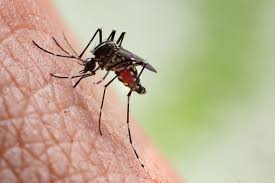Health
Nigeria leads with 27% in global malaria deaths – WHO

Nigeria accounted for 27 per cent of the global malaria deaths in 2020, the World Health Organisation (WHO) has said.
The group in its world malaria report released on Monday said six countries, including Nigeria, recorded a total of 50 per cent of malaria deaths worldwide in 2020.
The WHO, in its latest report, said there was an estimate of 241 million malaria cases and 627,000 malaria deaths — mostly of children under five — worldwide in 2020.
The 2020 figure represents about 14 million more cases in 2020, compared to 2019, and 69,000 more deaths.
In the report, Nigeria was also among six countries that accounted for 55 per cent of all cases worldwide.
“About 96% of malaria deaths globally were in 29 countries. Six countries – Nigeria (27%), the Democratic Republic of the Congo (12%), Uganda (5%), Mozambique (4%), Angola (3%) and Burkina Faso (3%) – accounted for just over half of all malaria deaths globally in 2020,” the report reads.
“Twenty-nine countries accounted for 96% of malaria cases globally, and six countries – Nigeria (27%), the Democratic Republic of the Congo (12%), Uganda (5%), Mozambique (4%), Angola (3.4%) and Burkina Faso (3.4%) – accounted for about 55% of all cases globally.”
According to the report, the COVID pandemic disrupted malaria services, leading to a marked increase in cases and deaths.
The WHO, in a statement, said the situation could have been far worse, adding that at the beginning of the pandemic, it had projected that – with severe service disruptions – malaria deaths in sub-Saharan Africa could potentially double in 2020.
It, however, noted that many countries took urgent action to shore up their malaria programmes.
The Director-General of the WHO, Tedros Ghebreyesus, said this year’s world malaria report surveyed the extent of damage by the COVID pandemic on the global malaria response.
“Even before the COVID-19 pandemic struck, global gains against malaria had levelled off,” he said.
“Thanks to the hard work of public health agencies in malaria-affected countries, the worst projections of COVID’s impact have not come to pass.
“Now, we need to harness that same energy and commitment to reverse the setbacks caused by the pandemic and step up the pace of progress against this disease.”
Health
Ekiti College of Nursing, parents at war over increase in hostel fee

Ekiti College of Nursing, parents at war over increase in hostel fee
The parents’ body of students of Ekiti State College of Nursing Sciences, Ado Ekiti has appealed to Governor Biodun Oyebanji, the state House of Assembly, and the commissioners for education and health to intervene in its stalled negotiation with the management of the college over the astronomical fees charged by a private estate developer, BVERS Hostel and Suites.
In the petition obtained by Sunday Vanguard, the parents stated: “We, as the parents’ body of the above College, use this medium to register our ordeal with the management of the college and a private developer over exorbitant charge of N250,000 per bed space.
“Sir, permit us to inform you that a bed space was charged at N40,000 in the year 2022 when our children were offered admission into the college, but this amount was increased to N100,000 per bed space when the students resumed. It took several negotiations before we were given a few months’ grace to pay for the additional N60,000 to make up for the increment.
“We were surprised to receive an urgent call in September this year from our children that they have been moved to a new hostel within the college and with instructions by the college management that a bed space will now cost N280, 000.
“However, the amount was merely reduced to N250, 000 per bed space after several engagements with the College Management to register our objections to the obnoxious increment. Further several appeals for reduction of the accommodation fee by the college management are unyielding and have eventually forced us to appeal to you as the father of the State to come to our aid and mediate on this issue and review as follows:
READ ALSO:
- Ilesa varsity student electrocuted while pressing phone
- Court Ruling: How Obasa played Lagos Assembly members
- Eight arrested in Maiduguri for killing, burying newborn
“The hostel, as designed, is only suitable for a student; after a careful review of the prevailing circumstances in and around Ekiti State, a charge of N250,000 per student space is outrageous and unsustainable.
“Considering the health and well-being of our children, it will be hazardous to allocate four students to a room originally designed to accommodate a student.
“That we seek your fatherly intervention to instruct the management of the college to accept our proposal of a charge of N150, 000 per bed space and allocate a maximum of two students to a room.
“We equally wish to appeal to His Excellency to intervene in the proposed increment of the college fees beyond common man. “Sir, we have no doubt in your government’s prioritization of the welfare of students and ensuring that their rights and interests are well protected at all times. We believe that you are against anything that will undermine the core principles of accessibility and affordability to education, which are crucial for factoring socio-economic growth in our state and the nation at large.”
When this correspondent sought the reaction of the Chief Medical Director of the Ekiti State University Teaching Hospital, EKSUTH, Professor Kayode Olabanji, he said he intervened when the parents brought the matter to his attention and that was why the initial fee of N280k was negotiated down to N250k and then N230,000.
“However, it was when we negotiated it down to N250k that the parents decided to take the matter to the Office of the Governor and the House of Assembly. So, since the matter is now at the higher office, and a panel has been set up, we have to wait government pronouncement on the matter,” Prof Olabanji said.
Many of the parents, who spoke to Sunday Vanguard, said they don’t mind paying the N230,000, but the rooms should be of modern standards that would cater to the number of available students.
Ekiti College of Nursing, parents at war over increase in hostel fee
Health
UI management raises alarm over female students turning egg donation into source of income

UI management raises alarm over female students turning egg donation into source of income
The University of Ibadan (UI) has raised concerns over the growing trend of female students donating eggs for In-Vitro Fertilisation (IVF), with some reportedly turning it into a regular source of income.
 The University Health Service (UHS) issued a memo, titled ‘Health Advisory on Egg Donation,’ signed by Dr. Aderonke Ajav, highlighting the issue.
The University Health Service (UHS) issued a memo, titled ‘Health Advisory on Egg Donation,’ signed by Dr. Aderonke Ajav, highlighting the issue.
University spokesperson, Joke Akinpelu, confirmed that the memo was published in the university’s bulletin.
The management has expressed alarm at the increasing number of female students involved in egg donation, urging them not to view it as a financial opportunity.
READ ALSO:
- Speed Darlington alleges use of ‘Juju’ by Portable during celebrity boxing bout
- Speed Darlington alleges use of ‘Juju’ by Portable during celebrity boxing bout
- Davido eyes Nollywood, to invest in film projects
“It has come to our attention that there is a growing trend within the university community involving the participation and/or recruitment of female students as egg donors for In-Vitro Fertilisation (IVF) by individuals, agents or agencies,” the memo read.
“While egg donation has brought hope to many families struggling with infertility, it is important to note that it should not be considered a permanent source of income or an alternative side hustle.”
The institution acknowledged that current research has yet to provide clear conclusions on who is medically fit to donate, the safe frequency of donations, and the optimal interval between them.
As a result, the memo advised students to limit donations to no more than three times a year and to select reputable clinics that follow established guidelines and prioritize the safety of donors.
UI management raises alarm over female students turning egg donation into source of income
Health
FG begins free Cesarian Sessions in over 100 hospitals (See list)

FG begins free Cesarian Sessions in over 100 hospitals (See list)
The Federal Government has begun offering free Caesarean Section (CS) procedures in more than 100 hospitals across Nigeria, according to the National Health Insurance Authority (NHIA).
NHIA Director-General, Dr. Kelechi Ohiri, announced the development in Abuja, explaining that the initiative falls under the Comprehensive Emergency Obstetric and Neonatal Care (CEmONC) Programme.
He noted that the scheme is operational across federal, state, private, and faith-based medical facilities located in all six geopolitical zones of the country.
According to Ohiri, women in need of assistance only need to provide a National Identification Number (NIN), which may be presented either before or after hospital admission.
He clarified that the determination of eligibility lies with the hospital’s social welfare department, which assesses patients’ financial situations.
“Once assessed, eligible women receive the CS at no cost and are automatically enrolled into a health insurance plan under the Basic Health Care Provision Fund (BHCPF), managed at the state level,” he disclosed.
Dr. Ohiri emphasized the collaborative nature of the effort, which involves both public and private sector healthcare providers with the goal of tackling maternal mortality.
READ ALSO:
- AfDB Adesina speaks on shocking truth that keeps Africa poor
- Kano man Shamsu Yakubu arrested for licking goat’s genitals
- CBEX: Investors hospitalised following trading platform crash
“The nationwide coverage is across key health institutions,” the NHIA boss stated.
He listed major beneficiaries in the North-West region to include Aminu Kano Teaching Hospital and Murtala Mohammed Specialist Hospital in Kano; Usmanu Danfodiyo University Teaching Hospital and Maryam Abacha Women and Children Hospital in Sokoto. Others are Ahmad Sani Yariman Bakura Specialist Hospital and several General Hospitals in Zamfara and Kebbi states.
In the North-East, the program covers Federal Teaching Hospital, Gombe; University of Maiduguri Teaching Hospital; Federal University of Health Sciences Teaching Hospital, Azare; Federal Medical Centres in Nguru and Jalingo; and Modibbo Adama University Teaching Hospital in Yola.
North-Central institutions include Federal Medical Centres in Bida and Keffi; University of Abuja Teaching Hospital in Gwagwalada; and General Hospitals in Suleja, Mokwa, and Tunga Magajiya.
For the South-West, beneficiaries include Ekiti State University Teaching Hospital, Federal Medical Centre Ido-Ekiti, State Hospital Abeokuta, State Specialist Hospital Okitipupa, and Oba Ademola Maternity Hospital in Ijemo.
In the South-South region, the list includes University of Uyo Teaching Hospital, University of Port Harcourt Teaching Hospital, Federal Medical Centre Yenagoa, University of Calabar Teaching Hospital, Irrua Specialist Teaching Hospital, and University of Benin Teaching Hospital.
He stated that the South-East had the Federal Teaching Hospital, Abakaliki, Ebonyi; David Umahi University Teaching Hospital, Uburu, Ebonyi; NOFIC Abakaliki, Ebonyi, among others.
Faith-based and private hospitals are also included in the initiative, among them St. Gerard’s Catholic Hospital in Kaduna, St. Patrick Hospital in Abakaliki, Yusuf Dantsoho Memorial Hospital, and Sir Patrick Ibrahim Yakowa Memorial Hospital in Kafanchan.
Ohiri revealed that more than 200 additional facilities are currently undergoing assessment for inclusion, which could significantly broaden the program’s reach.
“This initiative is a critical part of the government’s commitment to ending preventable maternal deaths.The free CS services are not limited to federal facilities; state-owned, private, and mission hospitals have been engaged to reach as many women as possible,” he noted.
He further explained that there is no formal enrollment process to benefit from the coverage.
“As long as a woman presents her NIN and is evaluated by the hospital’s social welfare unit as financially incapable, the surgery will be offered free of charge,” he said.
Ohiri urged the public to spread awareness about the program, particularly in underserved communities where the cost of delivery can be a major obstacle.
FG begins free Cesarian Sessions in over 100 hospitals (See list)
-

 International3 days ago
International3 days agoBreaking: Pope Francis dies at 88 – Vatican
-

 metro2 days ago
metro2 days agoBring your children to compete with mine, MC Oluomo challenges those mocking his spoken English
-

 metro1 day ago
metro1 day agoRivers: Tinubu meets with Fubara, may lift his suspension
-

 metro3 days ago
metro3 days agoHow Nigerian hotelier died during wife’s 60th birthday celebration
-

 News2 days ago
News2 days agoTinubu returns to Nigeria after France, UK trip
-

 Business2 days ago
Business2 days agoMarketers count losses as NNPC slashes petrol price
-

 metro2 days ago
metro2 days agoAnsar-Ud-Deen Society of Nigeria elects new leaders, Tinubu praises educational contributions
-

 metro2 days ago
metro2 days agoReno Omokri defends Tinubu’s appointments, blasts president’s critics













